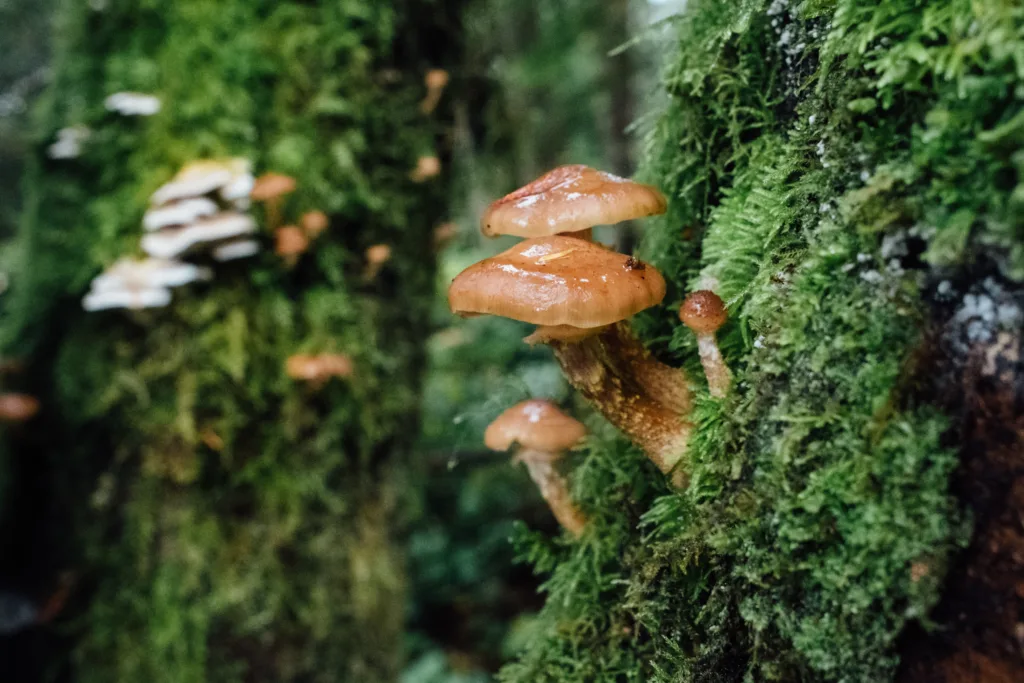Mycology is the study of fungi, which are a diverse group of organisms that play important roles in the natural world. Fungi are responsible for decomposing dead organic matter, forming symbiotic relationships with plants, and producing important compounds such as antibiotics and enzymes. Given the many important roles that fungi play, it is no surprise that there is a growing interest in the field of mycology.
Despite this interest, there are currently no undergraduate programs that focus specifically on mycology in the United States or the United Kingdom. Instead, mycology is typically taught as part of botany or microbiology degrees. This means that students interested in studying mycology will need to take courses in these related fields in order to gain a solid foundation in the subject.
At the postgraduate level, the study of mycology is more specialized and can vary depending on the research focus of individual departments and researchers. Some postgraduate programs may focus on the ecology and evolution of fungi, whle others may focus on the use of fungi in biotechnology or medicine. It is important for students interested in pursuing a postgraduate degree in mycology to carefully research potential programs and to find one that aligns with their interests and career goals.
Most mycologists work in academia, government research labs, or in industries such as biotechnology, biofuels, and medicine. In these roles, they may study the genetics and physiology of fungi, develop new products based on fungi, or work to understand the ecological roles of fungi in natural environments. However, there are also opportunities in more niche areas such as mushroom farming, mushroom bioproducts (such as packaging materials and leather alternatives), and foraging.
While there may not be specific undergraduate programs in mycology, there are still many opportunities for students interested in studying fungi to gain a solid foundation in the subject and to pursue careers in related fields. The study of mycology is an important and growing field, and those with an interest in fungi are sure to find many exciting opportunities in the years to come.
Is There A Degree For Mycology?
In both the United States and UK, there are no undergraduate mycology-specific programs available for students who want to specialize in this field. However, mycology is taught as a part of certain modules in botany and microbiology degrees. Students who have an interest in fungi can opt for these modules to learn abut mycology.
At the postgraduate level, the type of mycology taught is based on the focus of the department and individual researchers. There are various postgraduate programs available that cover different aspects of mycology, such as fungal ecology, fungal genetics, and medical mycology. Students who want to pursue a career in mycology can opt for these courses to gain in-depth knowledge and understanding of the subject.
It is worth noting that mycology is a specialized field and requires a high level of expertise. Therefore, students who want to pursue a career in mycology should have a strong foundation in biology, chemistry, and microbiology. Additionally, students should have a keen interest in fungi and be prepared to undertake extensive research and experimentation.
While there are no undergraduate mycology-specific programs available, students can study mycology as part of certain modules in botany and microbiology degrees. At the postgraduate level, students can opt for specialized courses in mycology to gain in-depth knowledge and understanding of the subject.

What Jobs Can You Get With A Mycology Degree?
A mycology degree can lead to varous career opportunities in academia, government research labs, or industries such as biotechnology, biofuels, and medicine. Some of the specific job roles that you can pursue with a mycology degree are:
1. Mycologist: Mycologists study fungi and their impact on the environment, agriculture, and human health. They conduct research, analyze data, and publish papers to increase knowledge and understanding of fungi.
2. Mushroom Farmer: Mushroom farming is a growing industry that requires expertise in mycology. As a mushroom farmer, you would cultivate, harvest, and sell different types of mushrooms to wholesale markets, restaurants, or grocery stores.
3. Biotechnology Researcher: Biotechnology companies use fungi to develop new products and technologies. Mycologists can work as researchers and scientists in such companies to develop new drugs, biofuels, and other bioproducts.
4. Medical Mycologist: Medical mycologists specialize in diagnosing and treating fungal infections in humans and animals. They work in hospitals, clinics, or research institutions and are responsible for identifying the type of fungus and recommending appropriate treatments.
5. Forager: Foragers collect wild mushrooms from forests and sell them to wholesale markets, restaurants, or individual customers. They need to have a deep knowledge of mycology to identify edible and toxic mushrooms.
6. Mushroom Bioproducts Developer: Mycologists can work in the development of mushroom-based products such as packaging materials, leather alternatives, and other bioproducts. This field is rapidly growing as consumers are increasingly interested in sustainable and eco-friendly products.
A mycology degree can lead to various career opportunities in different industries and fields, and the demand for mycologists is expected to increase in the coming years.
Conclusion
While there are no undergraduate mycology-specific programs in the United States and UK, students interested in this field can pursue botany and microbiology degrees that include mycology modules. Postgraduate mycology studies are tailored to the research focus of the department and individual researchers. Mycologists have diverse career opportunities, including academia, government research labs, and varius industries such as biotechnology, medicine, mushroom farming, and mushroom bioproducts. Moreover, mycology is an exciting and rapidly evolving field that has the potential to offer unique solutions to various global challenges. Pursuing a mycology degree can be an excellent opportunity for students interested in scientific research, sustainability, and innovative technologies.
